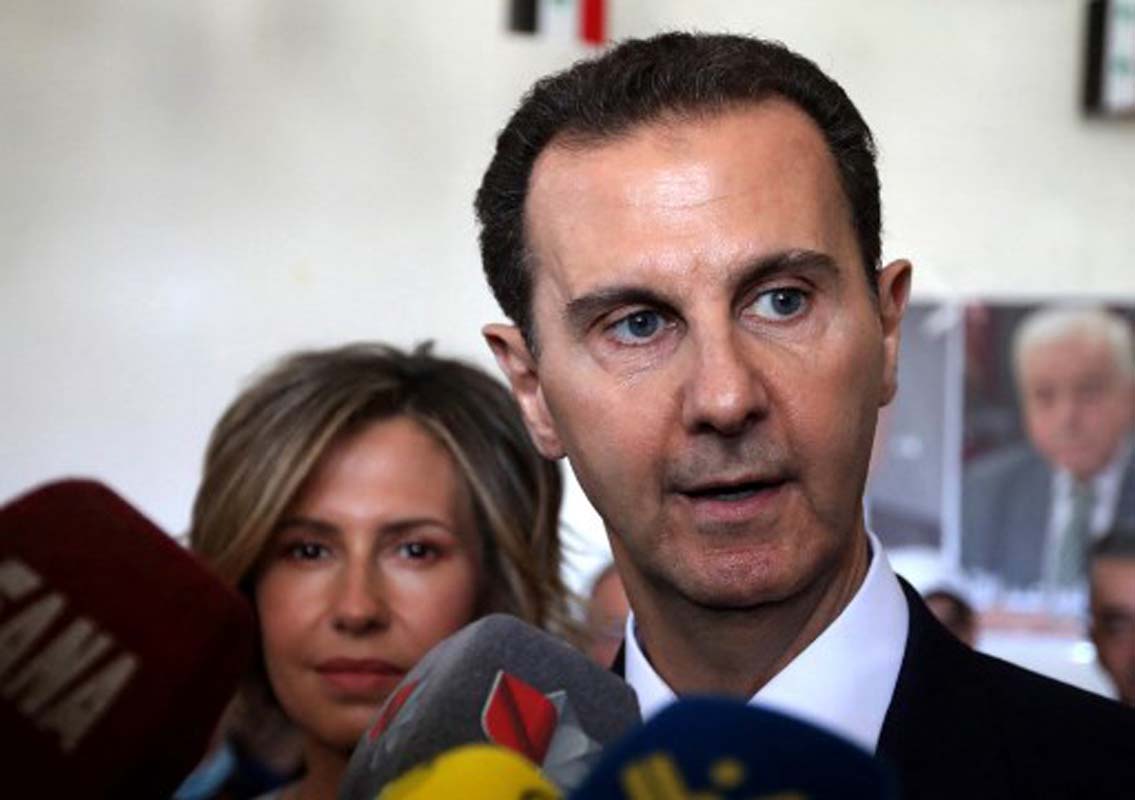
403
Sorry!!
Error! We're sorry, but the page you were
looking for doesn't exist.
Bashar al-Assad leaves behind country fraught with significant challenges
(MENAFN) When Bashar al-Assad fled Syria for Moscow on December 8, he left behind a country fraught with significant challenges. The ongoing conflict has devastated Syria’s infrastructure, leaving its people struggling to access basic services such as electricity, gas, and fuel. The Syrian currency’s plummeting value and the low salaries of public sector workers, often ranging from $10 to $25 per month, reflect the economic hardships citizens face. The country is also grappling with the aftermath of the revolution, including the disappearance of over 100,000 individuals, and a widespread military presence from international and regional powers, including the U.S. and Russia. These challenges are compounded by harsh Western sanctions that hinder foreign investment.
Amidst these issues, new complications have emerged surrounding the political landscape, particularly with the rise of Hay'at Tahrir al-Sham, a group classified as a terrorist organization by the U.S. and many other countries. There is also concern about the potential influence of former jihadist leaders and the ideological orientations of the new Syrian administration, raising questions about the future governance of the state and its treatment of Syria’s ethnic and sectarian minorities. The new Syrian leadership, particularly under Ahmed al-Shara (formerly known as Abu Muhammad al-Julani), has had to navigate these challenges from the moment Assad’s fall seemed inevitable. Al-Shara's approach contrasts sharply with that of his predecessor, the former ISIS spokesman, Abu Muhammad al-Adnani, who adopted an aggressive stance against various regional and international powers, ultimately leading to his isolation and defeat.
In contrast, Al-Shara has pursued a more diplomatic and conciliatory approach. His speeches emphasize economic development, national healing, and an inclusive governance model that reassures both internal and external stakeholders. By distancing himself from past conflicts and adopting a neutral stance, he aims to present the new Syrian administration as a partner for peace and recovery, focusing on rebuilding Syria without seeking revenge or causing further division.
Amidst these issues, new complications have emerged surrounding the political landscape, particularly with the rise of Hay'at Tahrir al-Sham, a group classified as a terrorist organization by the U.S. and many other countries. There is also concern about the potential influence of former jihadist leaders and the ideological orientations of the new Syrian administration, raising questions about the future governance of the state and its treatment of Syria’s ethnic and sectarian minorities. The new Syrian leadership, particularly under Ahmed al-Shara (formerly known as Abu Muhammad al-Julani), has had to navigate these challenges from the moment Assad’s fall seemed inevitable. Al-Shara's approach contrasts sharply with that of his predecessor, the former ISIS spokesman, Abu Muhammad al-Adnani, who adopted an aggressive stance against various regional and international powers, ultimately leading to his isolation and defeat.
In contrast, Al-Shara has pursued a more diplomatic and conciliatory approach. His speeches emphasize economic development, national healing, and an inclusive governance model that reassures both internal and external stakeholders. By distancing himself from past conflicts and adopting a neutral stance, he aims to present the new Syrian administration as a partner for peace and recovery, focusing on rebuilding Syria without seeking revenge or causing further division.

Legal Disclaimer:
MENAFN provides the information “as is” without warranty of any kind. We do not accept any responsibility or liability for the accuracy, content, images, videos, licenses, completeness, legality, or reliability of the information contained in this article. If you have any complaints or copyright issues related to this article, kindly contact the provider above.






















Comments
No comment